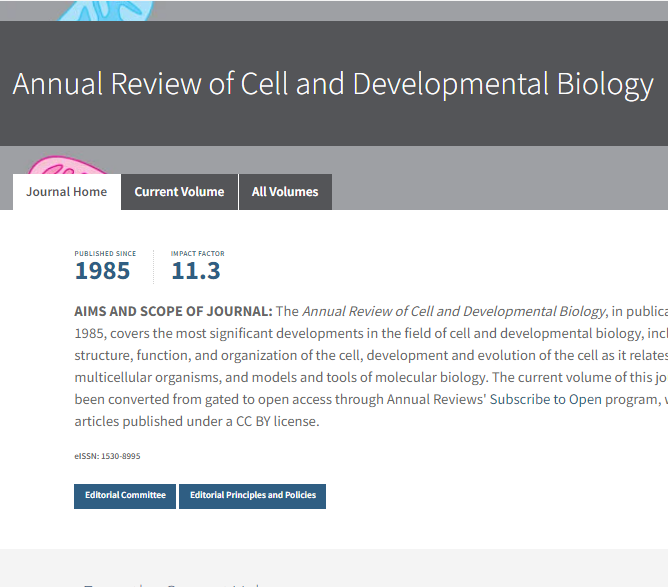植物后期促进复合体/环小体。
IF 11.4
1区 生物学
Q1 CELL BIOLOGY
Annual review of cell and developmental biology
Pub Date : 2022-04-08
DOI:10.1146/annurev-cellbio-120420-092421
引用次数: 8
摘要
后期促进复合体/环体(APC/C)是一个大的多亚基e3泛素连接酶复合体,通过泛素化特定靶蛋白来控制细胞周期的单向进展,标记它们进行蛋白酶体破坏。尽管APC/C在真核生物中的作用在很大程度上是保守的,但其亚基组成和靶谱似乎具有物种特异性。本文综述了植物APC/C复合体的研究进展,该复合体的活性与植物多倍体和配子体的发育过程有关。在介绍了泛素化对蛋白质水解的控制后,我们讨论了植物APC/C的组成及其核心亚基在植物发育中的本质。随后,我们描述了APC/C激活子亚基和相互作用,大多数是植物特异性的。最后,我们提供了一个完整的已确认和疑似植物APC/C靶蛋白列表。确定与生长相关的目标可能为通过操纵APC/C活性来提高作物产量和植物对气候变化的适应能力提供机会。《细胞与发育生物学年度评论》第38卷的最终在线出版日期预计为2022年10月。修订后的估计数请参阅http://www.annualreviews.org/page/journal/pubdates。本文章由计算机程序翻译,如有差异,请以英文原文为准。
The Plant Anaphase-Promoting Complex/Cyclosome.
The anaphase-promoting complex/cyclosome (APC/C) represents a large multisubunit E3-ubiquitin ligase complex that controls the unidirectional progression through the cell cycle by the ubiquitination of specific target proteins, marking them for proteasomal destruction. Although the APC/C's role is largely conserved among eukaryotes, its subunit composition and target spectrum appear to be species specific. In this review, we focus on the plant APC/C complex, whose activity correlates with different developmental processes, including polyploidization and gametogenesis. After an introduction into proteolytic control by ubiquitination, we discuss the composition of the plant APC/C and the essential nature of its core subunits for plant development. Subsequently, we describe the APC/C activator subunits and interactors, most being plant specific. Finally, we provide a comprehensive list of confirmed and suspected plant APC/C target proteins. Identification of growth-related targets might offer opportunities to increase crop yield and resilience of plants to climate change by manipulating APC/C activity. Expected final online publication date for the Annual Review of Cell and Developmental Biology Volume 38 is October 2022. Please see http://www.annualreviews.org/page/journal/pubdates for revised estimates.
求助全文
通过发布文献求助,成功后即可免费获取论文全文。
去求助
来源期刊
CiteScore
19.50
自引率
0.00%
发文量
21
期刊介绍:
The Annual Review of Cell and Developmental Biology, established in 1985, comprehensively addresses major advancements in cell and developmental biology. Encompassing the structure, function, and organization of cells, as well as the development and evolution of cells in relation to both single and multicellular organisms, the journal explores models and tools of molecular biology. As of the current volume, the journal has transitioned from gated to open access through Annual Reviews' Subscribe to Open program, making all articles published under a CC BY license.

 求助内容:
求助内容: 应助结果提醒方式:
应助结果提醒方式:


